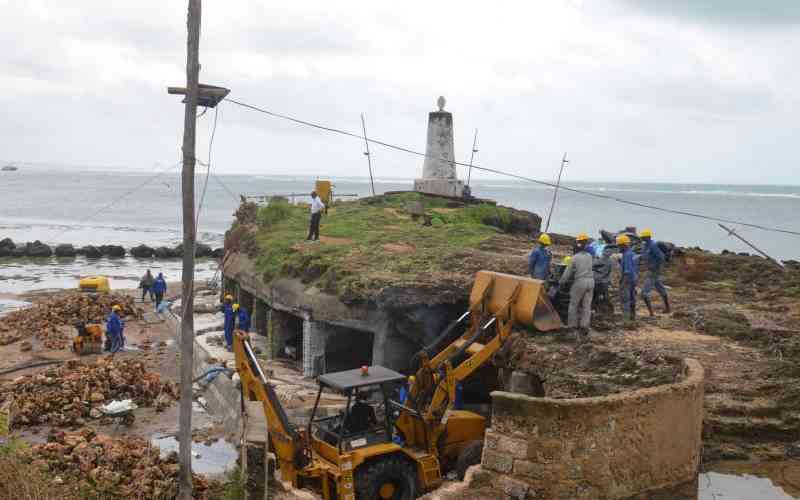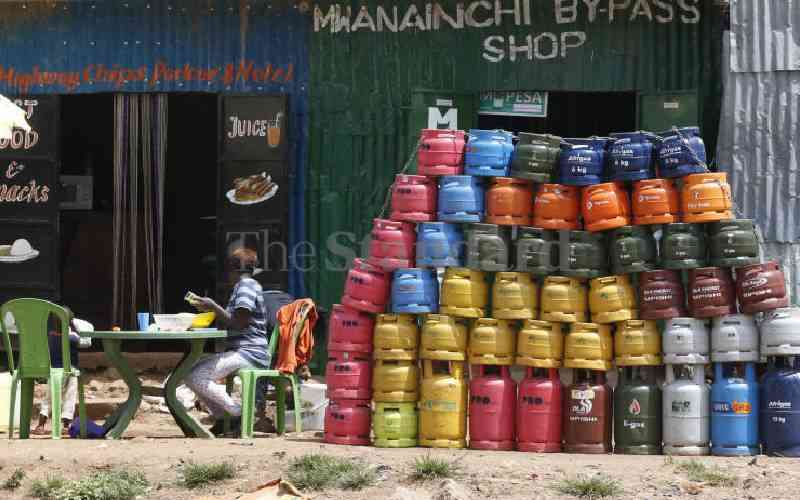By Joe Ombuor
In his book, Dreams Beyond My Shadow, former Kenya Commercial Bank (KCB) Chief Executive Martin Oduor-Otieno candidly outlines events behind the hiring of the Dream Team by the Moi Government “to breath some fresh air into his regime” and the impossible hurdles they had to clear in the process.
In President Moi’s words according to the book, the country was going through a very difficult time, hence his choice of the six technocrats “to help restore some sanity”. Some bigwigs in his Cabinet resisted it all.
The book reveals that Moi literally asked the disgruntled bigwigs to “hold back their daggers” and allow the new kids on the block to work. But that was ephemeral.
For Oduor-Otieno, he had no illusions from the word go after then Finance Minister, Yekoyada Masakhalia cheekily advised him to “take things slowly” adding: “I have been around for a long time and one thing I can tell you is that you should take it easy here”.
From what Oduor Otieno would instantly discern, his new waters were murky. There was no formal handing over to start with. His consolation was that Richard Leakey, a determined and world-acclaimed performer, was the lead navigator in those waters soiled by years of debilitating corruption, repression, abuse of human rights and negative ethnicity that set the economy on a free fall mode, helped on by mounting opposition.
Others in the Leakey team were Wilfred Mwangi as PS for Energy, Mwanghazi Mwachofi, Finance, Kitili Mbathi, Investment, and Shem Migot Adhola, Agriculture. Martin was PS, Treasury.
Key assignment
Their primary obligation as far as the President was concerned, was to bring back donors who had been scared off by the many problems bedeviling the country.
How were they to go about it? The six identified reforms in the key sectors of the Judiciary, police, anti-corruption institutions, the civil service, infrastructure development and agriculture as priority areas. That meant trampling on sensitive toes indeed. It was not long before daggers were back, honed to trim the new team to size.
Accountability went in tandem with civil service reform and Masakhalia, Otieno’s own minister, was among the first casualties when he was moved from the Treasury. Several Permanent secretaries were swapped and 28,000 civil servants laid off in a painful surgery to render the service lean and efficient.
Otieno recalls how difficult it was for the team to strike the right cord with the Breton Woods institution in Washington DC, a task they had to undertake to try and bring a terribly broke country back to its feet.
“The Government had no money and was literally in the ICU,” he writes. Simeon Nyachae had dared say just as much earlier and was demoted”.
He argues that it was critical to bring the IMF back for they held the key to donor funds, regardless of what else was thought of them.
In spite of all their persuasive skills, nothing was immediate, says Otieno who was part of the many errands to Washington DC and locally convened forums to beg for donor funds. Rescheduling of debts to give some relief to the cash flow crunch took a whole year.
Says Otieno of their experience: “It is humbling to be put through mortifying grilling on behalf of one’s country, and especially if you are answering to sins committed by other people or regimes.
He describes as “not sustainable” what he calls “a demeaning begging bowl syndrome”.
Otieno rues that their assignment came at a time when the top brass of the Public Service was given to gossip and cheap talk, even at senior levels. “A lot of this got into the ears of the President, who would usually act upon it without checking the facts.
He regrets that a deliberate move was hatched by characters close to the president to ensure they achieved little or nothing and cites the goings at the Athi River based East African Portland Cement where he says the Managing Director was literally running down the company.
“It seemed that this was his sole mission. The board was supposed either to watch quietly, or to endorse the running down”.
“It was clear that the top management at the company was involved in syndicates with agencies that were buying cement on the cheap and selling it to the public at exorbitant prices”, he writes with the conclusion that the rip-off enjoyed support of mandarins in the regime’s inner circle.
The situation was worse at the National Social Security Fund (NSSF), an important cash cow at the time.
It is humbling to be put through mortifying grilling on behalf of one’s country, and especially if you are answering to sins committed by other people or regimes.”
 The Standard Group Plc is a multi-media organization with investments in media
platforms spanning newspaper print operations, television, radio broadcasting,
digital and online services. The Standard Group is recognized as a leading
multi-media house in Kenya with a key influence in matters of national and
international interest.
The Standard Group Plc is a multi-media organization with investments in media
platforms spanning newspaper print operations, television, radio broadcasting,
digital and online services. The Standard Group is recognized as a leading
multi-media house in Kenya with a key influence in matters of national and
international interest.
 The Standard Group Plc is a multi-media organization with investments in media
platforms spanning newspaper print operations, television, radio broadcasting,
digital and online services. The Standard Group is recognized as a leading
multi-media house in Kenya with a key influence in matters of national and
international interest.
The Standard Group Plc is a multi-media organization with investments in media
platforms spanning newspaper print operations, television, radio broadcasting,
digital and online services. The Standard Group is recognized as a leading
multi-media house in Kenya with a key influence in matters of national and
international interest.









